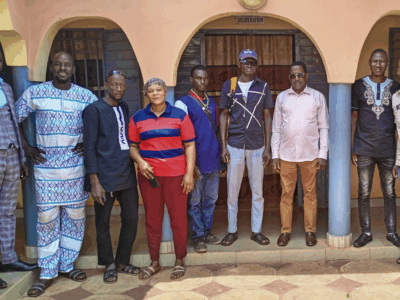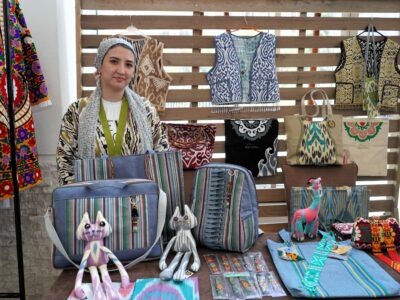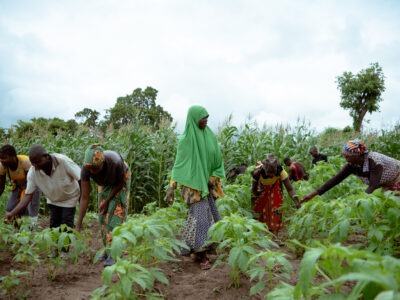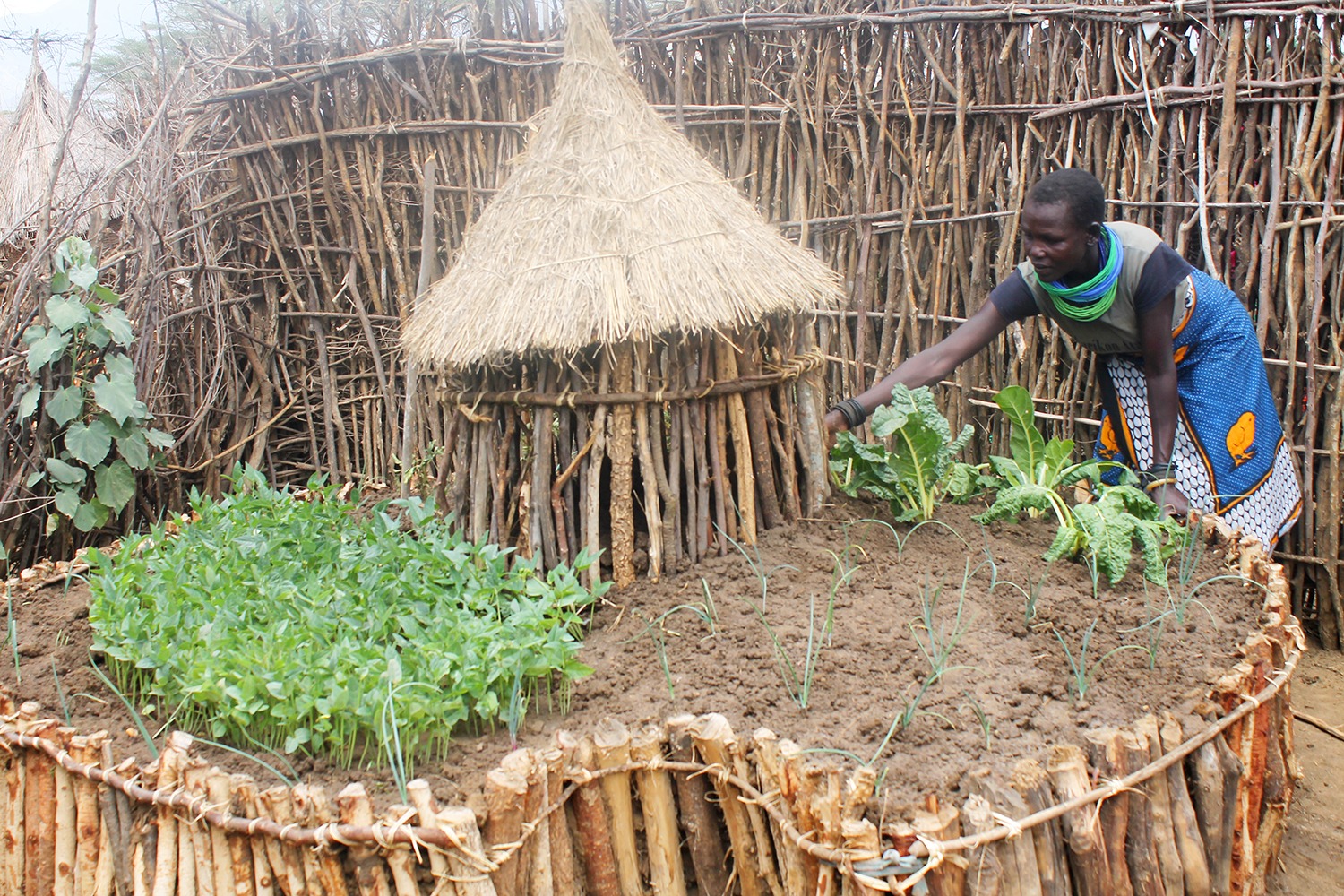
Promoting Sustainable Water Management for Improved Nutrition and Health in Uganda
Traditionally, people living in southern Karamoja in arid northeastern Uganda have relied on rivers and streams for their water. In recent years, however, unreliable rains and long dry seasons have led to reduced water availability and small harvests, putting vulnerable households at risk of malnutrition. When water is available from these sources, it can be easily contaminated and harbor waterborne disease. In this region, clean water can be scarce—potentially causing conflict within communities.
Efficient Use of Water Resources for Improved Nutrition
To improve the ability of families to grow food, the USAID-funded, ACDI/VOCA-implemented Resilience through Wealth, Agriculture, and Nutrition (RWANU) project trained nearly 3,500 women in the construction and maintenance of keyhole gardens. Keyhole gardens are easy to maintain and require only a small amount of water to flourish. To conserve resources, women can also easily re-use wastewater from household chores to water their plants.
To date, RWANU has assisted in the construction of more than 7,000 keyhole gardens across southern Karamoja. With year-round production of vegetables through keyhole gardens and the efficient use of water, women can now easily grow food for their families, contributing to a more-diverse and nutritious diet.
Greater Access to Clean Water for Better Health
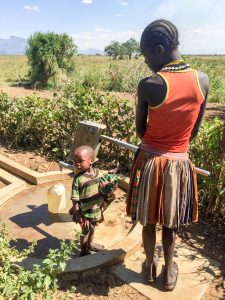 To help vulnerable communities reliably access clean sources of water, RWANU refurbished 24 boreholes, or water wells, throughout southern Karamoja. By improving the condition of boreholes, some of which had been dilapidated or broken for years, people who live in these areas no longer have to worry about finding safe water. In 2016, more than 9,000 project beneficiaries reported having access to clean water through the refurbished boreholes.
To help vulnerable communities reliably access clean sources of water, RWANU refurbished 24 boreholes, or water wells, throughout southern Karamoja. By improving the condition of boreholes, some of which had been dilapidated or broken for years, people who live in these areas no longer have to worry about finding safe water. In 2016, more than 9,000 project beneficiaries reported having access to clean water through the refurbished boreholes.
With a reliable source of safe water, people in southern Karamoja can also more easily follow water, health, and sanitation practices that they learned about through the RWANU project.
“Typhoid doesn’t happen anymore. And I can now practice better hygiene because I have access to clean water.” –Project participant Teresa N.
Protecting Clean Water Sources through User Committees
After repairing the boreholes, RWANU worked with community members to set up water user committees—groups of individuals from surrounding communities who work together to protect the boreholes and collect user fees to maintain them. Through these committees, communities can now proactively and independently manage their water sources.
“Since the initial reconstruction, the water user committee has been able to successfully mend the borehole twice, using only water user fees. The borehole continues to be in good condition and is now serving two other villages.” –Committee member Agnes Chemkeya
The USAID RWANU project is a five-year, Development Food Aid Program funded by USAID’s Office of Food for Peace and implemented by ACDI/VOCA, Concern Worldwide, and Welthungerhilfe. The project is designed to reduce food insecurity among vulnerable people in southern Karamoja, Uganda.
More about Resiliency through Wealth, Agriculture, and Nutrition (RWANU).

